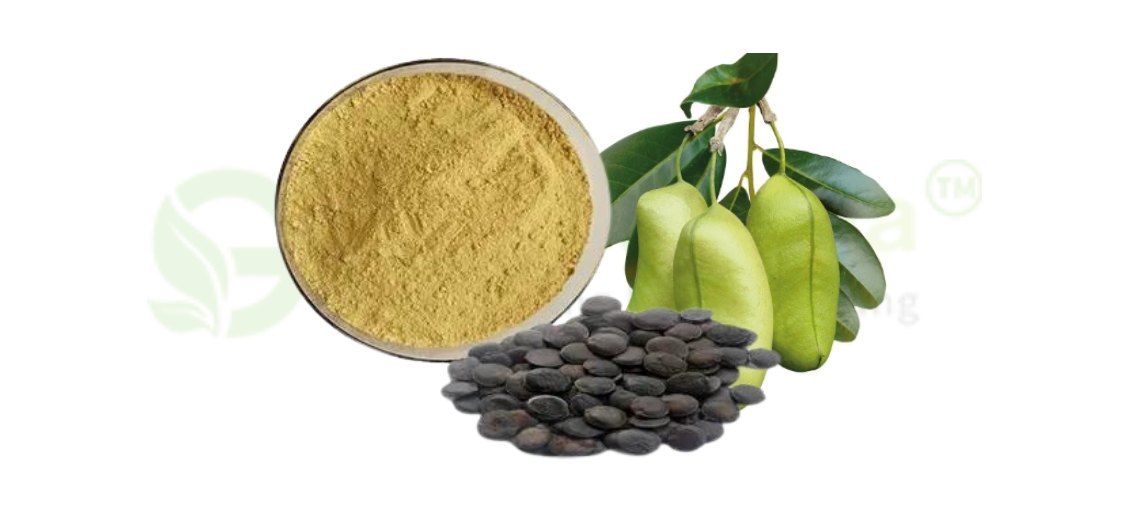Griffonia Seed Extract vs. Synthetic 5-HTP: A Comparison for Supplement Manufacturers

In the quest to provide consumers with high-quality supplements, manufacturers must make informed decisions about the ingredients they use. One common ingredient in mood-enhancing and sleep-aid supplements is 5-Hydroxytryptophan (5-HTP). This compound, a precursor to serotonin, can be sourced from natural griffonia seed extract or produced synthetically. Here, we explore the advantages and disadvantages of both options to help supplement manufacturers make the best choice for their products.
Griffonia Seed Extract: A Natural Source of 5-HTP
Griffonia simplicifolia, a plant native to West Africa, is the primary natural source of 5-HTP. The seeds of this plant contain significant amounts of 5-HTP, which can be extracted and used in supplements.
Advantages:
Natural Label Appeal: Consumers increasingly favor natural products. Supplements containing griffonia seed extract can be marketed as natural, appealing to this growing market segment.

Complex Phytochemistry: Griffonia seed extract contains other phytochemicals that may offer additional health benefits. These compounds can work synergistically with 5-HTP to enhance its effects.
Traditional Use: The use of griffonia seed in traditional medicine can provide a historical context that appeals to consumers interested in herbal remedies and natural health solutions.
Disadvantages:
Supply Chain Variability: As a natural product, griffonia seed extract can be subject to fluctuations in availability and quality due to environmental factors, seasonal changes, and harvesting practices.
Higher Costs: The process of cultivating, harvesting, and extracting 5-HTP from griffonia seeds can be more expensive than synthetic production, potentially leading to higher costs for manufacturers.
Potential for Contaminants: Like all natural products, griffonia seed extract can be contaminated with other plant materials, pesticides, or heavy metals, requiring rigorous testing and quality control.
Synthetic 5-HTP: Consistency and Control
Synthetic 5-HTP is produced through chemical synthesis, resulting in a highly pure form of the compound.
Advantages:
Consistency and Purity: Synthetic production allows for precise control over the purity and consistency of 5-HTP, ensuring that each batch meets exact specifications.
Cost-Effectiveness: The production process for synthetic 5-HTP can be scaled efficiently, often resulting in lower costs compared to natural extracts.
Availability: Synthetic 5-HTP is not subject to the same environmental and seasonal variations as griffonia seed extract, ensuring a stable and reliable supply.
Disadvantages:
Lack of Natural Appeal: Some consumers are wary of synthetic ingredients and prefer products labeled as natural. This can limit the marketability of supplements containing synthetic 5-HTP.
Absence of Additional Phytochemicals: Synthetic 5-HTP does not contain the other beneficial compounds found in griffonia seeds, potentially reducing the overall efficacy of the supplement.
Perceived Safety Concerns: Despite being chemically identical, some consumers perceive synthetic ingredients as less safe or effective than their natural counterparts, which can impact product perception and sales.
Making the Choice
For supplement manufacturers, the decision between griffonia seed extract and synthetic 5-HTP hinges on several factors, including target market preferences, cost considerations, and supply chain stability.
If the target market values natural ingredients and the product's narrative can benefit from traditional use and phytochemical complexity, griffonia seed extract may be the superior choice. However, if consistency, cost-effectiveness, and supply reliability are paramount, synthetic 5-HTP offers clear advantages.
Ultimately, understanding the nuances of each option allows manufacturers to align their ingredient choices with their brand values and consumer expectations, ensuring the development of high-quality, marketable supplements.
Conclusion
In the competitive landscape of dietary supplements, ingredient selection is crucial. By carefully weighing the benefits and drawbacks of griffonia seed extract versus synthetic 5-HTP, manufacturers can make informed decisions that enhance product appeal and efficacy. Whether prioritizing natural origins or production consistency, the right choice will contribute to the success and reputation of the supplement brand.
For customers looking for organic and conventional raw ingredients with same-day shipping in and around Canada, visit Green Jeeva Canada.
**The Food and Drug Aministration has not evaluated these statements. This product is not intended to diagnose, treat, cure, or prevent any disease.**






